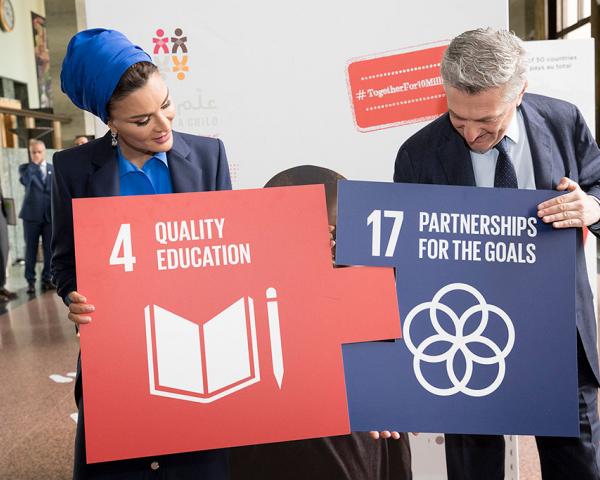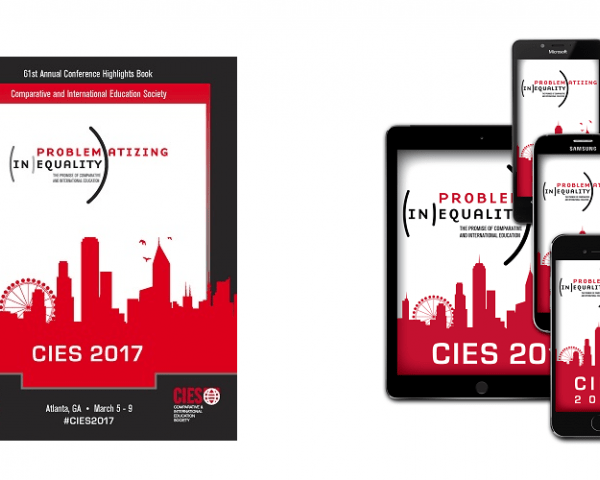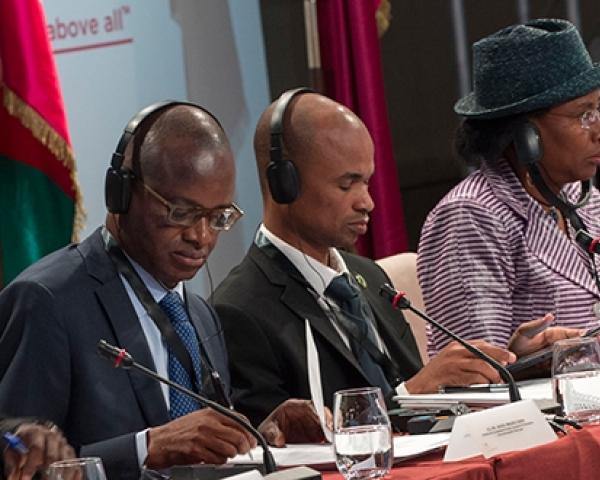Her Highness Sheikha Moza bint Nasser UNESCO Speech
Director-General Azoulay, let me begin by offering my congratulations to you on your election to your new post. It was a close race between France and Qatar with Dr. Al Kuwari, and we highly enjoyed it.
As you know, Qatar has a long history of supporting UNESCO, and we look forward to further enhancing our partnership under your leadership.
Honored guests and delegates,
Thank you for this opportunity to mark an important milestone in our shared efforts to address the global education crisis of out-of-school children, and to highlight the developments in our program.
I first stood before the United Nations 15 years ago to express my support for our shared vision: to provide quality education to children everywhere.
I have come here today to tell you that this shared vision is now a real possibility.
According to the updated estimate received just two days ago there are over 63 million children still out of school. These challenges might seem insurmountable.
But I have come here today to tell you that if more champions of education stand up and take part, these problems can be overcome.
As the world grapples with crises, I have come here today to tell you that if we want to counter the ramifications of crises, education must become our first priority.
If we wish for peace and prosperity for all, we must ensure education for all.
In pursuing that goal, I am proud to say that UNESCO is one of our strategic partners, and has been with us from the very beginning.
Since 2009, I have worked with UNESCO to rehabilitate the Iraqi education system, from the primary grades to higher education. We have worked across the country, despite the instability, training teachers and developing curriculums to deliver quality education at all levels. And I’m pleased to say that today, that project is running successfully under the supervision of the Iraqi government.
I’m also pleased to say that our partnership with UNESCO has expanded, and is now reaching marginalized children in 11 countries around the world.
It would not have been possible without the support of the State of Qatar and the generosity of our partners.
Pas encore fait: Today in Paris, we signed an agreement with UNESCO to educate 150- thousand more out-of-school children in the Middle East and Asia. Ca s’ameliore: We also signed an agreement with the American Refugee Committee to educate one million more children in Pakistan. These are major steps forward, and I am pleased to share them with you today.
Paris has historically served as a hub for international collaboration... and President Macron is breathing new life into the drive to educate children around the world.
So I am delighted to share these announcements in the presence of so many of our French partners, including the French Government, Humanity and Inclusion,
and Aide-et-Action.
Ladies and Gentlemen,
Over the past two decades in Qatar, we have witnessed the transformational power of education.
Internationally, through my work as UNESCO Special Envoy, I have met children who could only dream of receiving an education... children who faced discrimination, disability, conflict, natural disasters, and poverty... children who, over time, risked becoming mere statistics in annual reports.
Statistics cannot catalogue the impact of the children’s broken dreams. So we must not allow ourselves to be “numbed” by the numbers, and we cannot accept apathy as a response. Because history, as we know, will judge us, by both what we do, and what we choose not to do.
For too long, the solutions applied by the international community have fallen short. Most large-scale-efforts to provide universal primary education became unfinished goals.
We have seen the story too many times. Well-intentioned people, frustrated by the absence of tangible results, lose their enthusiasm when they find that their initiatives never end up supplying a textbook, or teaching a child to read.
We realized that if we kept operating like this, the number of out-of-school children would keep growing, and we would be chasing a never-ending problem.
We were determined to make “Educate A Child” different. We knew that the mission was possible...we just needed a different model.
We knew our resources would be limited, so we had to make a choice between two options: educate 60 million children for 1 year, or 10 million children for 6 years. We chose the latter. We wanted lasting change.
I then made a personal promise to provide primary education to 10 million children. I knew it was ambitious, but I wanted to show that even daring goals can be met.
What started as a personal challenge soon evolved into a global coalition. And today, with support of our many partners, we will soon keep our promise to educate 10 million children.
Ladies and Gentlemen,
If new sponsors join the cause and replicate our model, I believe that together, we can educate all 63 million children. We can do this. It is possible.
After all, we now know the formula: Dedicated partnerships using multi-sectoral solutions, fostered by strong political commitments. And we know that it works.
We know that quality Education impacts development well beyond the walls of the classroom. Which is why multi-sectoral solutions have been so critical to achieving quick, on-the-ground results and long-lasting impact.
In Mali, for instance, we collaborated with thirteen partners from different sectors to construct schools with proper hygiene facilities, build ramps for handicapped children, and help parents send their girls – as well as their boys – to school.
We saw, first hand, how an education initiative drove development.
So today I am inviting new partners to join us in this noble cause, because I believe that if we can succeed in replicating this multi-sectoral model, we can actually achieve all of the UN’s Sustainable Development Goals. Education is that powerful.
My friends, we have accomplished a lot with this multi-sectoral approach. But there is still much to be done, which is why we need political commitments.
I think we would all agree that education is a human right. And as a human right, education should be above all... and certainly above politics. But sadly, this is often not the case.
During the current siege against Qatar, for example, many Qatari students who were enrolled in schools in the blockading countries were expelled – including students studying at Sorbonne’s Middle East campus.
But the blockading states, with their irresponsible acts and reckless ruthless games, did not stop there.
To cite one example, our programs in Yemen, both education and employment initiatives, were “indefinitely postponed” last year.... halted because of their politique.
I visited Yemen years ago to see our programs which help employ the Yemeni youth. Yemen is a land of civilization, has people with beautiful minds, and great potential.
This vindictive act of halting these programs hurts the children of Yemen and jeopardizes the nation’s future. Worse, if humanitarian aid is not immediately allowed, more and more people in Yemen will starve.
This is just one tragic example of crisis in the world. Extremism thrives in environments characterized by hopelessness, frustration and despair, so finding ways to provide hope and opportunity should be a major priority.
The long-term cost of failing to provide education, coupled with desperate circumstances, leave the young vulnerable to extremist ideologies. Education gives young people the resilience and the critical skills they need to reject hate and violence.
Realistically, we cannot stop all conflicts from happening, but we can prepare the minds of the youth for the chance to survive the chaos. Just as Pasteur once said, “Chance favors only the prepared mind”.
We have seen education suffer where it is needed most: in conflict areas around the world. Unfortunately, education, as an institution, is currently fragile and defenseless. Algebra is not taught by soldiers in fortified compounds. It is taught by teachers in schools.
But, schools have been bombed and burned. Teachers have been murdered, and students have been abducted and forced to serve as child soldiers.
This orchestrated war on education must stop. Schools must become “safe havens.” Students, and their teachers, must be “off limits” in conflict areas.
The international community has the authority to demand this, and it must act.
I call upon international bodies to demand the safety and security of educational institutions...It is possible.
And I call upon government leaders to respect the right of every child to get an education, whether in peacetime or in war.
I call upon governments to stop playing political games with education. And it is very possible.
Ladies and Gentlemen,
I call for us to be even more persistent and brave in our current commitments....It is possible.
I call for new partners and sponsors to join our campaign, so the 63 million children will not be left behind...It is possible.
Most important, we need each person to think of educating out-of-school children as a personal challenge...as “their” cause.
If you are a sanitation company... If you build roads... If you provide clean water...If you supply electricity... If you specialize in nutrition...We need you to be a partner in educating children around the world. Scaling up this multi-sectoral solution will require thoughtful leadership and effective coordination.
France can take on this role through its unique position at UNESCO. We are looking to you for this leadership, and we are here to help multiply the results.
For my part... I have committed myself to striving, without end, to ensure quality education for all... above all.
I urge you to join me.
L’education pour tous, avant tout!
Merci.















